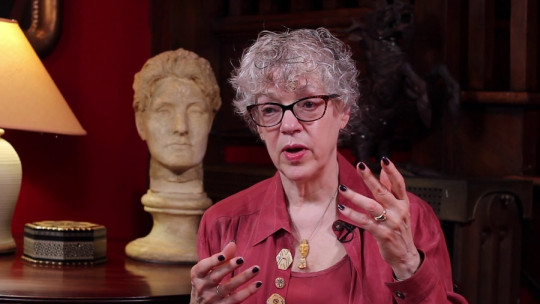
Carolyn Wood Sherif (1922-1982) was a social psychologist who, among other things, conducted important research on topics such as intergroup conflict, cooperation, power relations, social judgment, prejudice, and gender identities.
Wood Sherif’s work was carried out in the midst of a context that did little to promote the participation of women in social psychology, and they are, likewise, considered some of the most influential for the development of said discipline. Next we will a brief review of a biography of Carolyn Wood Sherif and we will see some of their contributions in social psychology and gender studies.
Carolyn Wood Sherif: biography of a pioneer in social psychology
Carolyn Wood Sherif was born on June 28, 1922 in Indiana, United States. She was the youngest daughter of three brothers, to whom an important motivation for high-level studies was soon transmitted, especially in the exact sciences. Her father was enrolled at Purdue University, so both Carolyn and her siblings had the opportunity to begin academic training at that institution.
Although her interest was mainly in the world of the humanities, history and other social sciences, her father’s insistence led Carolyn to also train in mathematics. This is how she positioned herself very soon as one of the best students within different branches, before arriving at social psychology
Beginnings in social psychology
After having trained in several disciplines, and once established as a social psychologist, Wood Sherif herself wondered… how did I become a social psychologist? (1983). There were not many opportunities to train and practice as a social psychologist in this context, and in addition, mixed models between professional development and family commitments were unusual.
Turning to the American context of the Second World War, which is where her academic and personal development took place, she herself responds that It was his desire to do something to improve the world which led her to ask herself different questions, which gradually brought her closer to social psychology.
Likewise, this desire led him to wonder about the possibilities that this discipline had to integrate the study of human cognition with motivation and social behavior. He was interested, for example, in the social psychology developed by Kurt Lewin, as well as studies in cultural and social organization, as carried out by Muzafer Sherif and Frederic Bartlett.
Carolyn Wood Sherif and Muzafer Sherif
After finishing his studies at Purdue University, he went to the University of Iowa to complete a master’s degree in psychology, which he completed in 1944. Later He began working for a research institute in Princeton, New Jersey. Through this position she gained a lot of research experience, however, she felt that it was a job very unrelated to the social issues in which she was interested, so she ultimately decided to resign.
At this time she began to seek advice on where and with whom to continue studying, and obtained the proposal to work as a researcher also at Princeton, but together with Muzafer Sherif, who was already one of the most important social psychologists.
The problem now was that Princeton University did not accept female students, so Carolyn began taking courses at Columbia University Not without ceasing to carry out, in parallel, research with Sherif, especially on the topic of intergroup relations. Years later, Muzafer Sherif would become her husband.
The den of thieves
In the following years, Carolyn Wood Sherif and Muzafer Sherif continued to work together at Princeton University, Yale University, and Oklahoma University, publishing numerous articles and books that are widely consulted in social psychology to this day.
However, due to the frequent forgetting of women’s scientific activity in this context; It is common for Carolyn Wood’s participation in such works to be dismissed or directly omitted, and for credit to be reserved solely for Muzafer.
One of his most popular investigations is the classic den of thieves experiment, where they analyzed the possible origins of prejudices in different social groups, as well as various intergroup dynamics. Broadly speaking, they conducted an experiment with 22 male adolescents in a rural area of Oklahoma, where they were able to observe how the formation of groups occurs, how social hierarchies are created; and what are some of the origins of friction, hostility and integration.
Academic activity and lines of research
In 1958, Carolyn Wood Sherif began training in a doctoral program at the University of Texas, under the supervision of Wayne Holtzman and accompanied by Muzafer Sherif and his three daughters. She graduated in 1961, and led a project at the United States Office of Vocational Rehabilitation where he focused on studies on self-concept and youth.
She also worked as a research associate at the Oklahoma Institute of Group Relations and published numerous articles and books on youth, reference groups, attitudes and social justice. Finally, in the 1960s her interests focused on psychology and gender, specifically gender identity, roles, and their reproduction. The latter coincided with the feminist movements of the same decade, which favored both her academic recognition and her militancy.
In this context, he presided over division 35 of the American Psychological Association (APA), during the 1970s, which It is known as the Society for the Psychology of Women Her work and experience have earned her several awards, including distinguished publication awards and awards for her contributions to psychology education.
In the same sense, Division 35 of the APA has dedicated an award in her honor (the Carolyn Wood Sherif Award), through which it recognizes the work of teaching, research and professional leadership in the psychology of women, both psychologists like psychologists.








